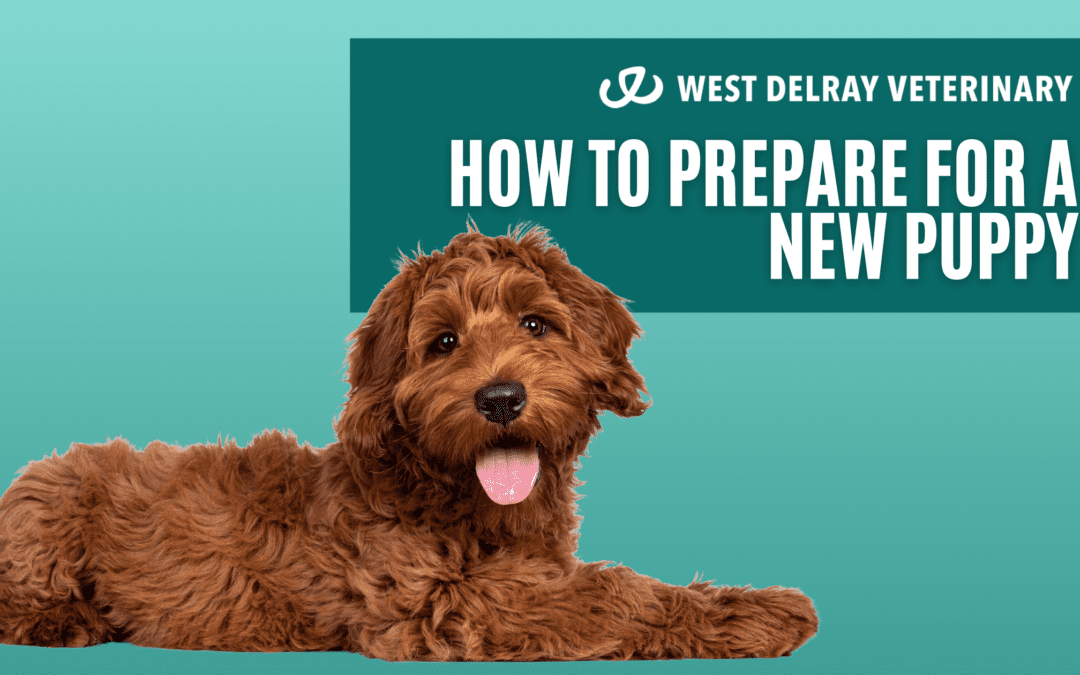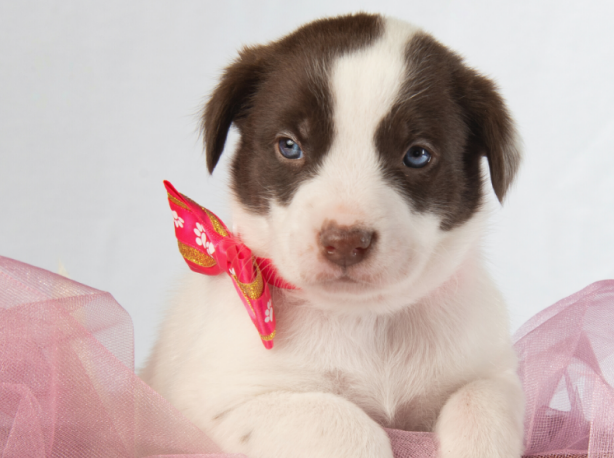Many of us have dreamt it, the image of walking into your living room on a holiday morning, only to be greeted by the sweetest little puppy staring back at you lovingly. Cuddles, playtime, and constant love, all sound like great reasons to get a puppy. However, once the excitement of a new pup wears off, the reality of the new responsibility can start to kick in.
If a new member of the family is entering your life this holiday season, it is important to prepare your home for their arrival to ensure that you and your pet are comfortable and ready for your new lives together. The following is a brief guide to preparing your home for a new puppy.
1. Create a welcoming environment
-
- Give them their own safe space. Whether that’s with a crate, playpen or a gated-off area, provide them with a space they can call their own.
- Chew toys will help during the teething stage.Teething and biting is normal behaviour for puppies. Chew toys will certainly help them from biting your fingers and toes or even tearing up your favorite pair of shoes. Be sure to keep a close eye on your pup when they have a chew toy as it could be a choking hazard.
- Try to introduce them to people slowly.Remember, it’s your puppy’s first time in a new environment, so try to avoid overwhelming them with a crowd of people or
other animals all at once. Instead, slowly introduce them to a new person or other pet one at a time. However, early and controlled socialization is important!
2. Pet proof your home
Puppies have a reputation of getting into trouble due to their curious nature and charged-up energy. Just like you would with a new baby, it is very important to create a safe environment for a new puppy.
-
- Make it a habit to keep your valuables out of reach. Puppies are VERY curious. Keep everything that’s important to you hidden away so they don’t get chewed on.
- Ensure your puppy can’t get into anything that may be dangerous to them. It is also important to keep your pet away from dangerous foods, plants or chemicals. If your puppy comes in contact with anything they shouldn’t, contact your local veterinarian immediately.
- Contain any exposed electrical wires/outlets/other electronics.These are always prime items for a new puppy to chew on. Take a look around the home to identify these potential hazards.
3. Establish a routine
Establishing a routine can help your pet determine what they should expect in their new home as well as encourage house training.
-
- Starting training and positive reinforcement early can help get your puppy on the
right track for success. Potty training a young puppy can be challenging. The first few weeks are often met with a lot of accidents in the house and 4 am wake-up calls to go outside. However, trying to schedule walks, potty breaks, meals, and playtime can help you and your pup establish a routine. - House training your puppy means scheduling a lot of bathroom breaks. The routine is recommended to include taking them out up to every two hours in the early weeks. They should go out immediately after waking up, after playtime, and after eating or drinking. When they go potty outside, shower them with positive praise and treats!
- When it comes to food and water, try feeding your puppy around the same time
every day.Puppies normally start with three meals a day and gradually transition to eating twice a day. Having a set time for these meals can mean a more established bathroom break routine to avoid any accidents.
- Starting training and positive reinforcement early can help get your puppy on the
4. Make sure you have all the essentials for your puppy’s first day
Double checking that you have all the essentials needed to take care of your new puppy is a MUST. Below is a helpful new puppy checklist:
-
- Food and water bowls
- Select a food that resonates with your philosophical standards or as recommended by your veterinarian
- Leash, collar, and/or harness
- LOTS and LOTS of toys and treats
- Dog beds
- Dog crate
- Playpen
- Brush/comb
- Other optional items may include: ear cleaner, toe nail clipper, pee pads
5. Schedule your new puppy appointment
You should schedule your puppy’s first vet appointment as soon as possible because they will need a general checkup and vaccinations to ensure they are and continue to be healthy. Puppies should receive a series of wellness checkups every 3-4 weeks between the ages of 6 to 16 weeks old.
-
- It is important to find a veterinarian that practices kindness and compassion like
West Delray Veterinary. Your puppy’s first appointment is an important stepping stone to establishing a good relationship with the vet. Our practice focuses on a stress-free visit, so your puppy can feel comfortable with every appointment and doesn’t grow up hating the vet. - It is important to be vigilant with observing your puppy’s health. If you notice they are scratching or rubbing their ears excessively, experience discharge or redness in the eyes or are demonstrating lethargy, diarrhea and vomiting, you should seek a local veterinarian.
- It is important to find a veterinarian that practices kindness and compassion like
If you are located in the Boca Raton, Delray Beach, or Boynton Beach area and have any questions about keeping your pets safe for the holiday season, please feel free to contact the team at West Delray Veterinary at 561-777-7173 or visit our website at www.westdelrayvet.com.


